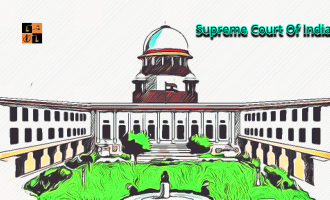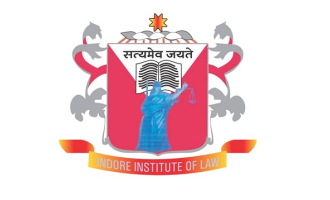The Environmental Law and Practice Review (ELPR) invites submissions for its Volume VII. ELPR is an annual scholarly publication of NALSAR University of Law, Hyderabad, India that seeks to encourage scholarship in the field of Environmental Law and Policy.
It is a peer-reviewed journal committed to engaging in scholarship on the developments in Environmental Law.
Publication Policy:
- ELPR accepts contributions in the form of articles, essays, notes and comments. The originality of ideas is paramount to the Journal.
- Therefore, please ensure that the material submitted to ELPR has not been published elsewhere and is not under consideration at any other publication.
- Joint authorship is permitted and there is no specific cap on the number of authors per submission.
- Plagiarism in any form shall result in rejection of the submission.
- The decision of the Editorial Board is final and binding in this matter.
- The author shall be deemed to have obtained the permission of the referred author in case the work is unpublished.
- The last date for submitting entries is 15th July 2018
Please send your submissions to nalsar.elpr@gmail.com
Nature of Contributions:
1. Article
An article is an exposition of lacunae prevailing in contemporary laws of any country, a comparative study of different laws, or the publishing of research data and analysis in subjects pertaining to environmental sciences and law.
Articles must typically engage in current contemporary themes. However, theoretical works are also welcome. It is advisable that the article have a theme or a core argument.
The author is expected to make a comprehensive study of the subject and offer fresh innovative solutions for the same. The article should not exceed 10,000 words (inclusive of footnotes).
2. Essay
An essay is a concise and succinct work that challenges existing paradigms in environmental law or policy and focuses on bringing unique perspectives to the discourse. Essays ought to put forward original arguments, observations and criticisms without compromising on brevity.
Furthermore, it is encouraged that an essay deal with a specific predicament, legal debate or interpretation of law. An essay should not exceed 6,000 words (inclusive of footnotes).
3. Legislative Critique/Case Comment
The author may critique an existing legislation, which may be an Act, Regulation, Rule, Scheme, Policy, Guideline etc. In the alternative, the author may critique a bill tabled before the Parliament of any country.
A case comment requires a thorough analysis of the various aspects and legislations of the judicial pronouncement. A case comment/legislative critique should not exceed 3500 words (inclusive of footnotes).
4. Book Review
A book review ought to incorporate a complete analysis and overview of the book. Direct lifting of more than thirty words (i.e. a paragraph) from the book being reviewed is strictly discouraged and will result in rejection.
The book being reviewed must engage with environmental law or policy and must not date back to more than three years from its date of issue/ publication in the public domain. A book review should not exceed 3000 words (inclusive of footnotes).
Submission Guidelines:
1. Format
Submissions are preferred in Times New Roman font, with 1.5 line spacing. Main text should be in font size 12 and footnotes in font size 10. All submissions must be compatible with Microsoft Word 2003 and 2007.
2. Word Limit
The word limit (inclusive of footnotes) is as follows:
Article – 10,000 words
Essay – 6,000 words
Case Comment/Legislative Critique & Notes – 3,500 words
Book Review – 3000 words
3. Citation Format
The citation format to be used is ‘The Bluebook: A Uniform System of Citation (20th Ed.)’
Speaking footnotes are discouraged.
4. Abstract
Every submission should be accompanied by an abstract of not more than 300 words describing the relevant conclusions drawn in the manuscript. Please note that there is no requirement of prior submission of abstract as the selection of the paper for publication shall be on basis of the full manuscript.
5. Biographical Information of Authors
A separate document with biographical information of the authors must be attached with the following details: Name, E-mail address, Postal Address, Name and Address of the Institution, Course (if applicable), and Academic Year. Please do not mention this information in the main manuscript.
For further queries,
please do not hesitate to contact the members of the Editorial Board on their phone numbers given below:
1. Patruni Srilakshmi: +91 7337402856
2. Gopika Menon: + 91 9846085126
3. Kaustub Neil Singh Bhati: +91 9829828750
4. Ruthika Reddy: +91 9866320501
5. Manaswita Gupta: +91 7995459521



































